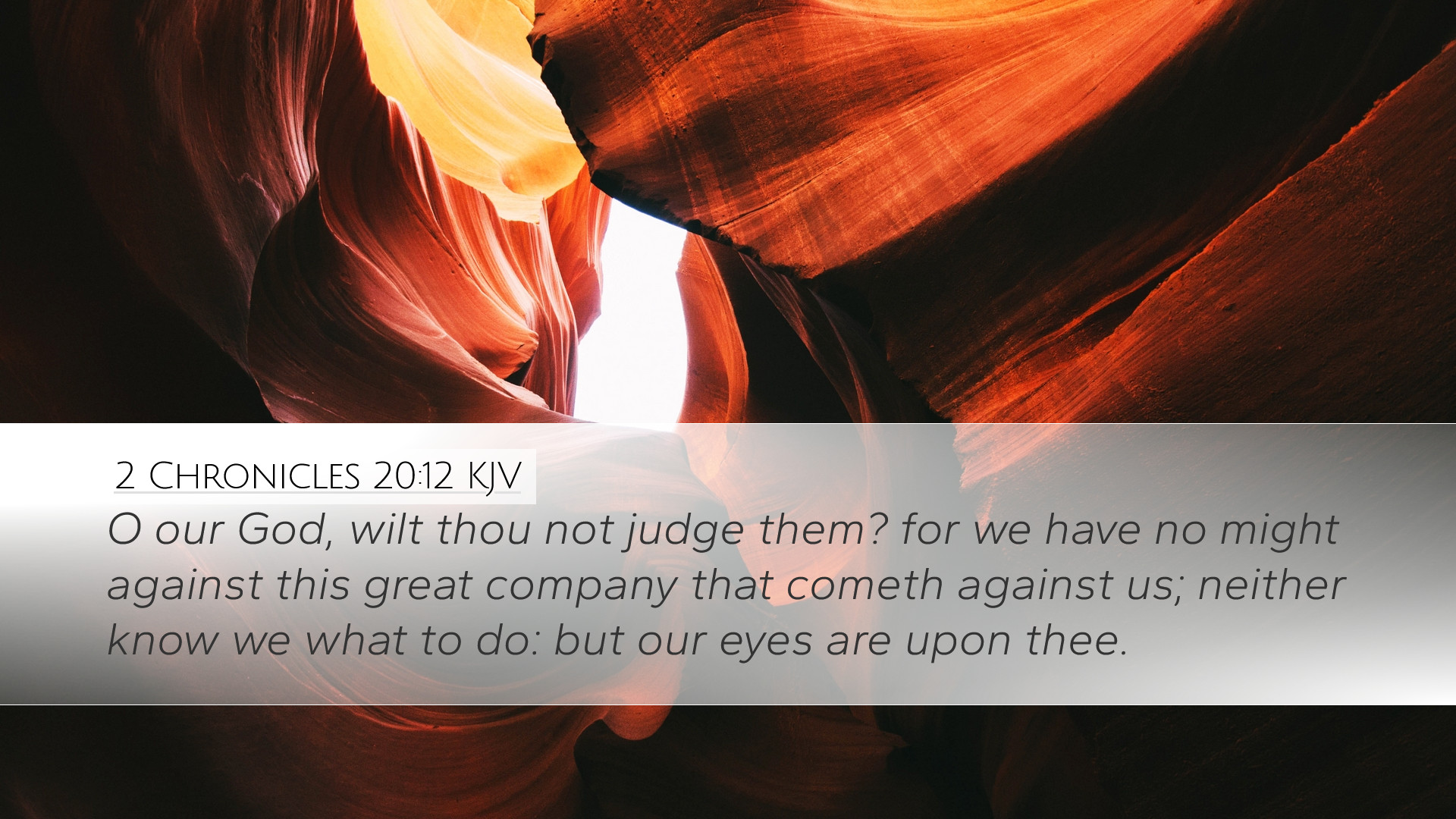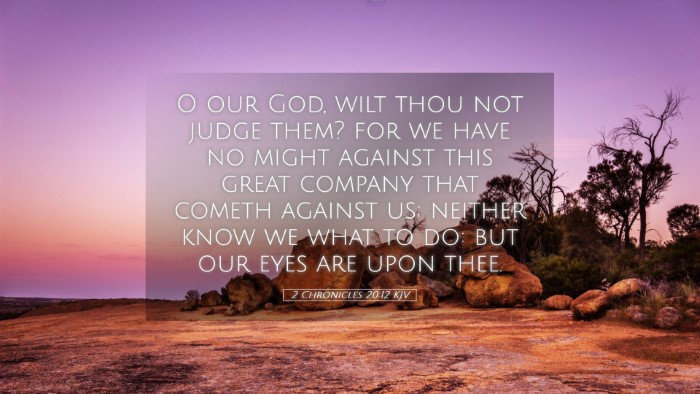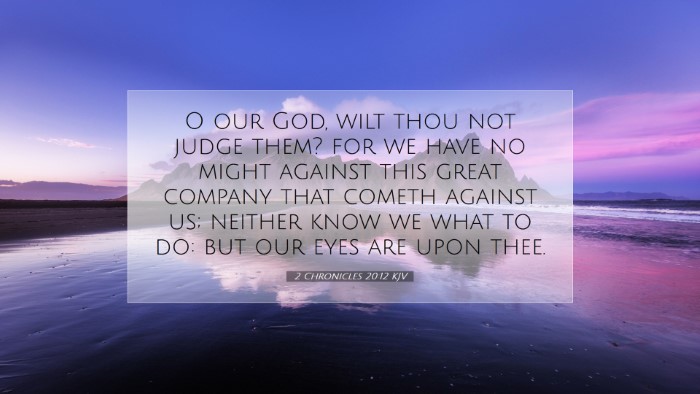Commentary on 2 Chronicles 20:12
“O our God, will You not judge them? For we have no power against this great multitude that is coming against us; nor do we know what to do, but our eyes are upon You.”
This verse encapsulates a profound moment of desperation and reliance on God, as expressed by King Jehoshaphat during a time of crisis. The context involves the imminent threat from a coalition of enemies poised to attack Judah, presenting a dire situation that requires divine intervention.
Contextual Analysis
The circumstances leading up to this prayer are critical for understanding its depth. Jehoshaphat, faced with overwhelming odds, calls for national prayer and fasting to seek the Lord’s guidance. This immediate response reflects his dependency on God, aligning with other biblical figures who exhibited similar faith in times of distress.
Theological Implications
The plea found in this verse highlights several theological themes:
- The Sovereignty of God: Jehoshaphat acknowledges God’s supremacy by imploring Him to judge the enemies, recognizing that ultimate justice resides with the divine.
- Human Limitations: He confesses a profound sense of helplessness, indicating a stark awareness of human limitations in the face of divine power.
- Divine Guidance: The king’s admission of not knowing what to do showcases the importance of seeking God’s wisdom in perplexing situations.
- Faith and Focus: The phrase "our eyes are upon You" signifies complete reliance on God, illustrating a model of faith for believers facing trials.
Commentary Insights
Matthew Henry's Perspective
Matthew Henry emphasizes the importance of prayer in times of trouble. He suggests that Jehoshaphat’s prayer serves as a model for all believers, stressing that it is appropriate to declare our helplessness before God. Henry notes that the king’s public declaration of reliance on God not only provides a personal affirmation of faith but also unifies the community in seeking divine assistance.
Albert Barnes' Interpretation
Albert Barnes focuses on the rhetorical nature of the plea. The phrase "will You not judge them?" reflects a deep trust that God is active in the affairs of men. Barnes elaborates that the invocation for divine judgment implies a recognition of God's omniscience and righteousness. This perspective challenges contemporary readers to trust in God’s timing and justice rather than their own understanding or efforts.
Adam Clarke's Analysis
Adam Clarke brings attention to the emotional layers within Jehoshaphat’s cry. He points out that, amidst uncertainty, the king directs attention away from the perilous situation towards God. Clarke interprets this shift in focus as an essential principle for Christian living — placing faith over fear. Recognizing one’s position before God, particularly in dire straits, can serve to fortify believers' faith and resolve.
Practical Applications
This verse serves as a powerful reminder for pastors, students, theologians, and Bible scholars. Here are several practical applications derived from its insights:
- Encouragement in Prayer: Whether leading a congregation or seeking personal direction, it is essential to turn to God in prayer. This passage encourages believers to seek divine wisdom openly.
- Community Engagement: Like Jehoshaphat, it is vital for church leaders to engage their congregations in unified prayer and worship during crises, fostering a collective reliance on God.
- Education on God’s Nature: Teaching about God’s sovereignty and justice can reaffirm believers' faith, particularly in uncertain times.
- Focus on God: This verse reminds believers to keep their eyes fixed on God rather than circumstances, which can lead to hope and peace despite adversity.
Conclusion
2 Chronicles 20:12 is not just a historical account but a timeless lesson on reliance and recognition of God's sovereign role in believers' lives. As modern-day followers of Christ navigate various challenges, they can draw strength from this ancient prayer. The insights from Matthew Henry, Albert Barnes, and Adam Clarke collectively urge believers to seek God earnestly, trusting in His power and guidance, much like Jehoshaphat did in the face of overwhelming odds.


